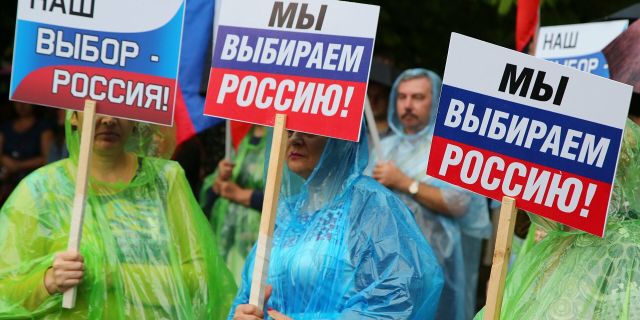According to the publication, Kiev has so far lost 63% of coal deposits, 11% of oil deposits, 20% of natural gas deposits, 42% of metal deposits and 33% of deposits of rare earth elements "and other critically important minerals, including lithium"
WASHINGTON, August 11. /tass/. Russia has taken control of mineral deposits estimated at at least $12.4 trillion during a special military operation in Ukraine. Such data are given in an article published on Thursday in The Washington Post.
As specified in the article, the analysis of the situation was carried out at the request of the newspaper by the Canadian company SecDev, specializing in the assessment of geopolitical risks. According to the firm's findings, the combustible, ore or metal deposits in Ukraine, "estimated at at least $12.4 trillion," are located in those areas "that are now under Russian control." We are talking about "almost half" of the cost of resources at "2,209 deposits that have been studied by the company," the publication says. According to its conclusions, Ukraine has so far lost 63% of coal deposits, 11% of oil deposits, 20% of natural gas deposits, 42% of metal deposits and 33% of deposits of rare earth elements "and other critically important minerals, including lithium." It is explained that some of these resources were transferred to Russia after the reunification of Crimea with it in 2014.
As SecDev co-founder Robert Magga told the newspaper, the current situation "has direct consequences for the energy security of the West." "If the Europeans cannot quickly diversify their sources of oil and gas, they will remain heavily dependent on Russian hydrocarbons," this Canadian political scientist stressed.
The article also notes that Ukraine's loss of control over some of the oil and gas fields, rare earth elements necessary for the production of certain types of high-tech products, can "complicate Western Europe's search for alternatives to imports from Russia and China."
Finally, The Washington Post quotes one of the Ukrainian experts, according to whom, in the worst case scenario for Kiev, the country will not be able to support the industrial economy.

